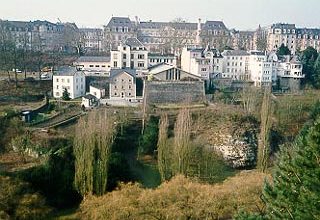Real estate abroad: to take or wait?
The global financial crisis and the shaky banking system cause the Russians, who were already about to buy real estate abroad, a logical question: is it worth it now, and do it at all? Maybe it’s better to wait until the storm abates? And will overseas property guarantee their investment?
The answer, at first glance, lies on the surface: no. According to Chambre de Notaires de Paris, apartment sales in the city for the fiscal year that ended in May fell by 20%. Prices in the secondary housing market in Abu Dhabi and Dubai have also fallen due to the global crisis. According to the forecast of the leading British consulting agency Capital Economics, at the end of 2009, the decline in housing prices in the country could reach 25%. Denmark’s housing prices have been declining for the third quarter in a row. And in Spain, the fall does continue for more than a year.
Rumors inflated by some media that Russian buyers of European real estate lost up to 40% of their investment due to the global financial crisis add fuel to the fire of investor uncertainty. Apparently, it is time to listen to the experts.
Igor Indriksons, director of the international investment department at the Intermark Savills consulting agency (Moscow), is confident that investing in foreign real estate is possible – but wisely. “First of all, you need to decide on the choice of market and strategy, and also to understand what this crisis is,” the expert says. “You can look for real estate with a growth potential of 20-30% per annum in markets that the crisis has not yet affected (such as countries in Eastern Europe, Albania, Montenegro, Cyprus, Bulgaria), or you can enter a market where prices are even“ sank ”, but within five years they can again start to grow (as, for example, in England). In addition, to minimize risks, it is necessary to apply structured strategies when investing in real estate, with which you can get 20-40% per annum on invested funds with a minimum market growth of 5-10% per year. “
Elena Yurgeneva, head of the foreign real estate department at Knight Frank, an international consulting company, believes that investing in emerging markets (such as Eastern European) is risky, although it can really bring considerable profit to the investor.
“But in times of economic instability, we undertake to make forecasts only for markets that have proved their resilience in the face of various financial shocks – these are the central regions of London, Monaco, the south of France, etc.,” says Elena Yurgeneva. – At the same time, if an investor is ready to take a chance, you can try yourself in a developing market. The global real estate market is now “standing”, many developers are ready to make discounts. Now there are a large number of buyers who are watching the market, so as not to miss their opportunities when prices reach the lowest level. We at Knight Frank believe that in today’s market, the winner will be the one who makes a purchase with free cash in the next six months. Those who need to seek financing are unlikely to make a profitable deal. Venture capital funds and private investors with enough cash will be the first to get the benefits of real estate or land acquired right now. We are already seeing an increase in investor activity with a large amount of available funds. ”
“The answer to the question of whether to take it or not, largely depends on what purpose you are buying real estate for,” says Mikhail Kelim, head of the leading Russian portal for foreign real estate Prian.ru. – If you take a house in a “falling” market – such as, for example, American, British, Baltic or Australian – with the purpose of investing, then you can’t get the desired dividends “here and immediately”. Although in the long run, such an investment makes sense. “
In this regard, it can be mentioned that the so-called “falling markets” also have a chance of growth. In particular, the former chairman of the US Federal Reserve Alan Greenspan predicts that the US housing market will come to its senses in the first half of 2009.
“In any case,” continues Mr. Kelim, “it is necessary to assess the situation in each specific country. In Spain, for example, the market continues to fall, although not very rapidly, which means that buying makes sense if the property is purchased for your own residence, such as a summer vacation. ”
The psychology of the Russian investor can be explained as follows: prices are falling, bank deposits are again showing their instability, and a house abroad – here it is, is in one place. So, “we must take.” Real estate can also “sink” in price – however, in the end, it can be bequeathed to children.
Many potential investors, however, may have a different opinion: the house requires maintenance, care, payment of taxes and other expenses, which ultimately can nullify its profitability.
However, this point of view speaks more about the lack of reliable information from the Russian buyer than about the real state of things. In Spain, it is still profitable to rent housing – this is facilitated by stable demand. In Germany, apartments and offices in large cities are well rented. A house in Finland, not far from the Russian border, will also be in demand among Russian tenants.
In order to get a complete picture of what is happening, you can turn to the news of world news agencies, which may already please a potential investor. So, according to the forecast of analysts at the London office of Knight Frank, prices for luxury housing in the British capital will begin to rise in 2010. The remaining segments of the UK real estate market will also “catch up” in price by this date. According to the Department of Commerce and the National Association of Realtors in the United States, sales in the primary and secondary housing markets in the country in September showed an insignificant, but an increase. Cluttons LLP, a large international real estate agency, has opened a new representative office in Athens to sell properties in Greece and Cyprus, with the main calculation of the agency based on buyers from Russia and the Middle East.
Finally, the Irish developer Flash Group Developments announced its readiness to build a 2.2 billion euro resort in Cape Verde, despite the crisis, and founded its own airline to deliver customers there.
Each investor will make a choice for himself. Ahead can lie in wait as a “big jackpot”, and “hut on chicken legs.” The most important thing is not to give in to panic and not to fall into euphoria regarding instant benefits, but to rely on the opinion of professionals and your own intuition.
According to the portal’s own research, the total number of Russians accessing the resource database in October of this year increased by 15% compared to September, which indicates the growing interest of our compatriots in foreign real estate.
This post is also available in:
 English
English  Русский (Russian)
Русский (Russian)






